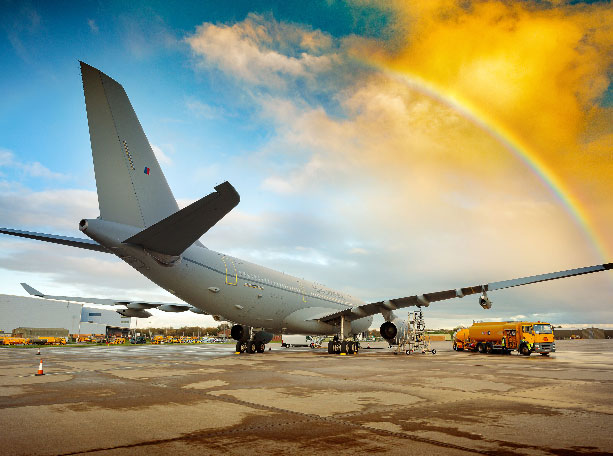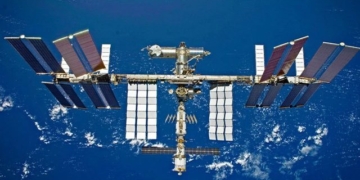The Royal Air Force (RAF) has successfully conducted a test flight of a massive military transport aircraft powered entirely by cooking oil.
The flight lasted 90 minutes and simulated an in-flight refueling mission, according to a press release from the UK Government.
“They should be proud of this achievement. It is a breakthrough moment for the RAF and an exciting development for the Ministry of Defence (MOD)”, said Baroness Annabel Goldie, the UK Minister of Defence.

RAF Voyager flew over Oxfordshire using 100% sustainable aviation fuel – (Photo: RAF).
The military version of the Airbus A330, RAF Voyager, flew over Oxfordshire with all engines using sustainable aviation fuel (SAF), paving the way for new options for the future of both military and civilian aircraft, according to Interesting Engineering.
SAF is primarily made from used cooking oil and waste fats. It can also be synthesized from municipal waste, biomass, and non-food crops.
The carbon emissions from SAF are typically up to 80% lower than those from conventional aviation fuel.
Air BP, in collaboration with the RAF, Defence Equipment & Support (DE&S), and industrial partners Airbus, AirTanker, and Rolls-Royce, provided the SAF for this test mission.
The successful test flight could help the RAF reduce its dependence on global supply chains and enhance operational resilience while lowering carbon emissions.
Air Chief Marshal Mike Wigston, Chief of the Air Staff, stated: “Climate change is a global challenge that threatens the sustainability, security, and prosperity of humanity. That is why I have tasked the RAF with the ambitious goal of becoming the world’s first net zero air force by 2040.”
Jet Zero Strategy
UK government regulations mandate that by 2050, all greenhouse gas emissions must be reduced to zero.
The Jet Zero Strategy outlines a plan for decarbonizing the aviation sector and asserts that sustainable aviation fuel is key to achieving environmentally friendly flights for both military and civilian aviation.
The UK has established an “Advanced Fuel Fund” worth £165 million to kickstart the domestic SAF industry.


















































